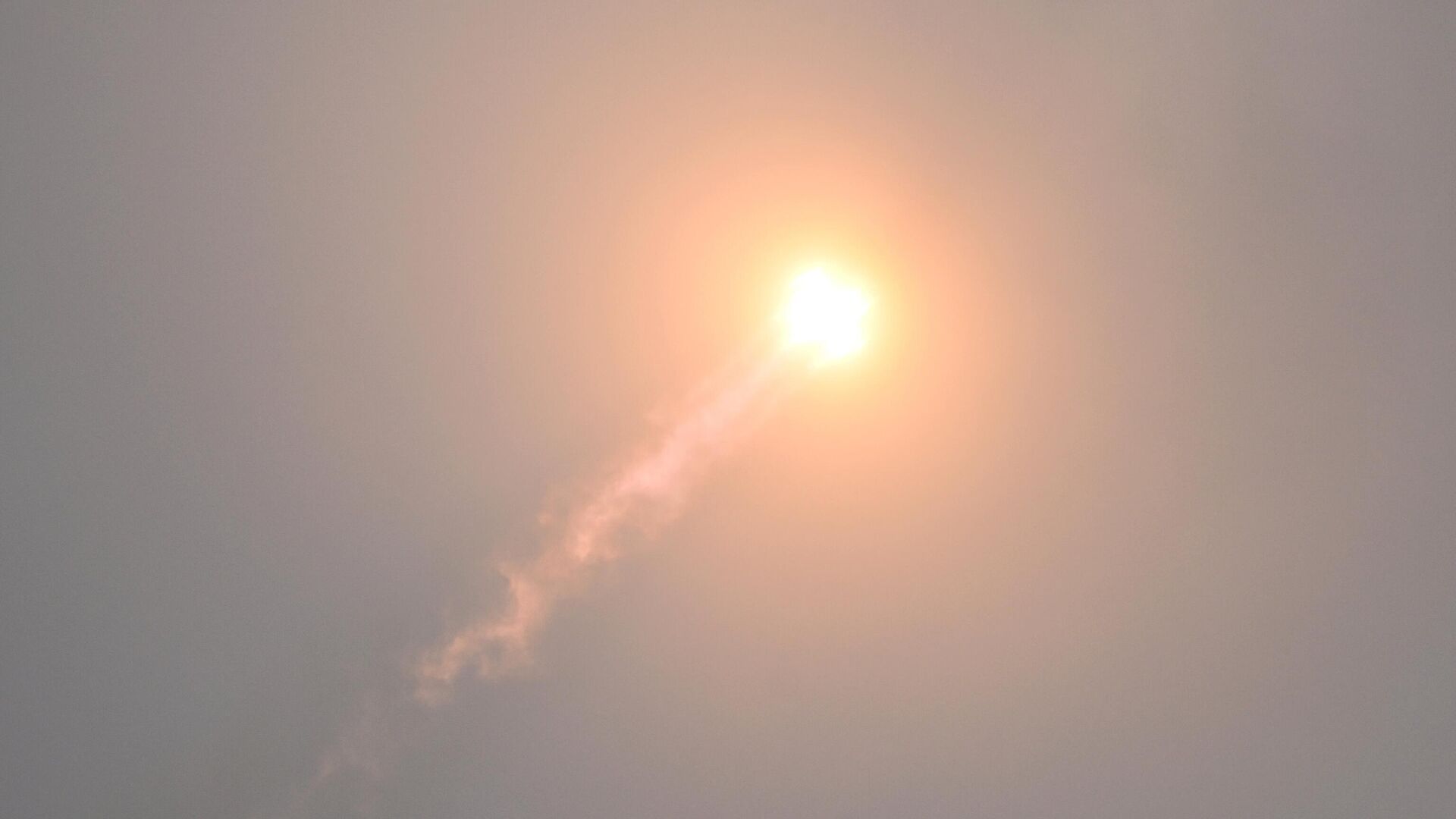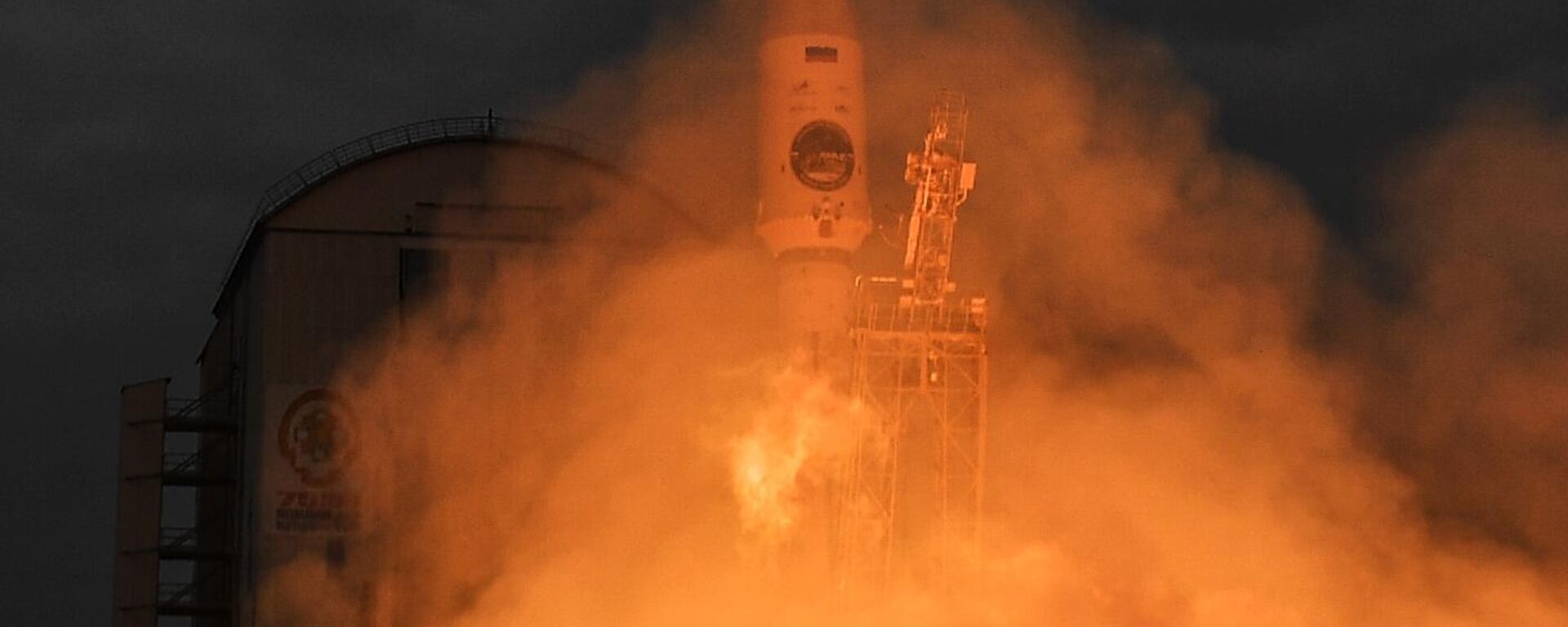https://en.sputniknews.africa/20230821/russias-roscosmos-reveals-reason-behind-lunar-stations-crash-1061499905.html
Russia's Roscosmos Reveals Reason Behind 'Luna-25' Lunar Station's Crash
Russia's Roscosmos Reveals Reason Behind 'Luna-25' Lunar Station's Crash
Sputnik Africa
"Luna-25," the first Russian mission to the Earth's natural satellite in 50 years, has gone silent on August 19 after turning on the propulsion system for... 21.08.2023, Sputnik Africa
2023-08-21T16:40+0200
2023-08-21T16:40+0200
2023-08-21T17:14+0200
russia
space
space exploration
moon
lunar station
luna-25
lunar soil
roscosmos
international
https://cdn1.img.sputniknews.africa/img/07e7/08/15/1061499708_0:0:3072:1728_1920x0_80_0_0_7a9b54f102b19b930512ea4228eea0af.jpg
The "Luna-25" engine ran for 127 seconds instead of 84 seconds when attempting to move to a pre-landing orbit, which caused the vehicle to crash into the Moon, Yuri Borisov, head of the Russian state space agency Roscosmos, said.According to the Roscosmos head, the transition to the pre-landing orbit took place in a radio communication zone, and experts knew everything about the spacecraft before its crash.The head of the agency added that the emergency commission appointed to investigate the causes of abnormal operation of the corrective engine has started work, the results of which Roscosmos will take into account when planning the next missions.Borisov voiced hope that despite the failure of the Luna-25 mission, future Russian missions to the Earth's natural satellite will be successful, adding that Russia definitely needs to participate in the lunar race. The Roscosmos head added that, hopefully, the next lunar missions "will be successful." Borisov also said that Russia gained a lot of experience despite the mission's failure. Roscosmos said on Sunday that the "Luna-25" spacecraft entered an unplanned orbit, collided with the moon and ceased to exist. The agency had prior to that lost contact with the vehicle, and its efforts over the weekend to locate the spacecraft and contact it were unsuccessful.The automatic landing module was expected to become the first station to make a soft landing on the Moon's South Pole with its complex terrain on August 21.
https://en.sputniknews.africa/20230820/russias-luna-25-station-ceased-to-exist-by-crashing-into-moon-space-agency-says-1061463472.html
russia
space
moon
Sputnik Africa
feedback@sputniknews.com
+74956456601
MIA „Rossiya Segodnya“
2023
Maxim Grishenkin
https://cdn1.img.sputniknews.africa/img/07e7/0a/17/1063018107_0:0:1104:1103_100x100_80_0_0_03090c85a11f5d2e8a19cf1d989443c9.jpg
Maxim Grishenkin
https://cdn1.img.sputniknews.africa/img/07e7/0a/17/1063018107_0:0:1104:1103_100x100_80_0_0_03090c85a11f5d2e8a19cf1d989443c9.jpg
News
en_EN
Sputnik Africa
feedback@sputniknews.com
+74956456601
MIA „Rossiya Segodnya“
Sputnik Africa
feedback@sputniknews.com
+74956456601
MIA „Rossiya Segodnya“
Maxim Grishenkin
https://cdn1.img.sputniknews.africa/img/07e7/0a/17/1063018107_0:0:1104:1103_100x100_80_0_0_03090c85a11f5d2e8a19cf1d989443c9.jpg
russia, space, space exploration, moon, lunar station, luna-25, lunar soil, roscosmos, international
russia, space, space exploration, moon, lunar station, luna-25, lunar soil, roscosmos, international
Russia's Roscosmos Reveals Reason Behind 'Luna-25' Lunar Station's Crash
16:40 21.08.2023 (Updated: 17:14 21.08.2023) "Luna-25," the first Russian mission to the Earth's natural satellite in 50 years, has gone silent on August 19 after turning on the propulsion system for braking before transferring to the pre-landing orbit. As a result, the station collided with the Moon surface.
The "Luna-25" engine ran for 127 seconds instead of 84 seconds when attempting to move to a pre-landing orbit, which caused the vehicle to crash into the Moon, Yuri Borisov, head of the Russian state space agency Roscosmos, said.
"Unfortunately, the engine shutdown did not go normally, in accordance with the cyclogram, but by time cutoff, and instead of the planned 84 seconds it worked for 127 seconds. This was the main reason for the failure of the apparatus," Borisov said.
According to the Roscosmos head,
the transition to the pre-landing orbit took place in a radio communication zone, and experts knew everything about the spacecraft before its crash.
"Preliminary ballistic calculations showed that due to the abnormal operation of the corrective propulsion system, the device switched to an open lunar orbit and, in fact, crashed into the surface of the Moon," Borisov noted.
The head of the agency added that the emergency commission
appointed to investigate the causes of abnormal operation of the corrective engine has started work, the results of which Roscosmos will take into account when planning the next missions.
Borisov voiced hope that despite the failure of the Luna-25 mission, future Russian missions to the Earth's natural satellite will be successful, adding that Russia definitely needs to participate in the lunar race.
"In no case should we interrupt the lunar program - it would be the worst decision. I think that the negative experience of interrupting the lunar program for 50 years is the main reason for the failure," he said, adding that the race for the development of the moon’s natural resources has begun.
The Roscosmos head added that, hopefully, the next lunar missions "will be successful."
Borisov also said that Russia gained a lot of experience despite the mission's failure.
"We gained invaluable experience of flying to the Moon, launching a spacecraft into a circular circular lunar orbit, and conducting a number of scientific experiments," Borisov said.
Roscosmos said on Sunday that the "Luna-25" spacecraft entered an unplanned orbit, collided with the moon and ceased to exist. The agency had prior to that lost contact with the vehicle, and its efforts over the weekend to locate the spacecraft and contact it were unsuccessful.
The automatic landing module was expected to become the first station to make a soft landing on the Moon's South Pole with its complex terrain on August 21.



